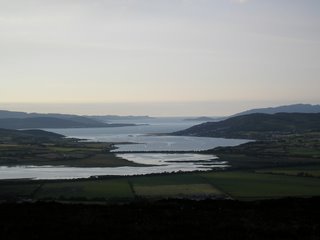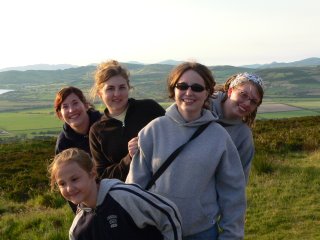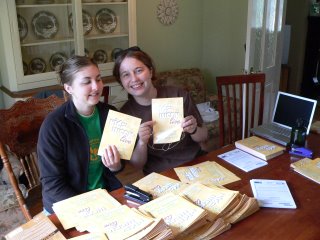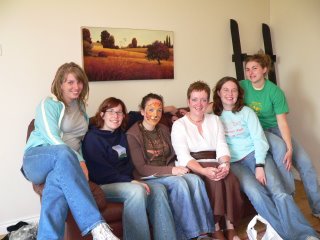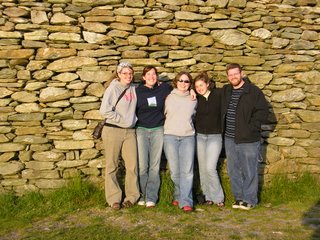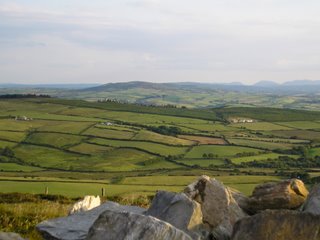11 Days till I start my journey to Ireland! I'm excited... but it is also accompanied by that weird feeling of "this isn't real." Sometimes I feel that way when I fly out east to see my parents... it is hard to believe that I will be in another place soon.
But, I'm starting to get ready to go. I ordered a larger back pack with the hopes of everything I need for 2.5 weeks to fit in my backpack... no luggage. we'll see how I do.
Anyhow... my hopes is to have access on occassion in Ireland to my blog and blog about my trip for all to see. So, check out this page for updates....
Well, I had to buy a new jar of pickles today and I finished reading "How the Irish Saved Civilization." - good book. Its about the Irish role in the fall of Rome to the rise of Medieval Europe. I didn't know that the barabaric Irish had such a huge role in the history of Europe. But here is a tiny bit of the last part of the book that I have been thinking about lately:
"As we, the people of the First World, the Romans
of the tweentieth century, look out across our Earth,
we see some signs for hope, many more for despair.
Technology proceeds apace, delivering the marvels that
knit our world together --- the conquering of diseases
that plagued every age but ours and the consequent
lowering of mortality rates, revolutions in crop
yields that continue to feed expanding populations,
the contemplated "information highway" that will soon
enable all of us to retrieve information and
communicate with one another in ways so instant and
complete that they would dazzle those who built the
Roman roads, the first great information system.
But that road system became impassable rubble, as
the empire was overwhelmed by population explosions
beyond its borders. So will ours. Rome's demise
instructs us in what inevitably happens when
impoverished and rapidly expanding populations, whose
ways and values are only dimly understood, press up
against a rich and ordered society. More than a
billion people in our world today survive on less than
$370 a year, while Americans, who constitute five
percent of the world's population, purchase fifty
percent of its cocaine. If the world's population,
which has doubled in our lifetime, doubles again by
the middle of the next century, how could anyone hope
to escape the catastrophic consequences -- the wrath
to come? But we turn our backs on such unpleasantness
and contemplate the happier prospects of our
technological dreams.
What will be lost, and what saved, of our
civilization probably lies beyond our powers to
decide. No human group has ever figured out how to
design its future. That future may be germinating
today NOT in a boardroom in London or an office in
Washington or a bank in Tokyo, But in some antic
outpost or other --- a kindly British orphanage in the
grim foothills of Peru, a house for the dying in a
back street of Calcutta run by a fiercely
single-minded Albanian nun, an easygoing French
medical team at the starving edge of the Sahel, a
mission to Somalia by Irish social workers who
remember their own Great Hunger, a nursery program to
assist convict-mothers at a New York prison -- in some
unhearlded corner where a great hearted human being is
committed to loving outcasts in an extraordinary way.
Perhaps history is always divided into Romans and
Catholics -- or, better, catholics. The Romans are the
rich and powerful who run things their way and must
always accure more because they instinctively believe
that there will never be enough to go around; and
catholics, as their name implies, are universalists
who instinctively believe that all humanity makes one
family, that every human being is an equal child of
God, and that God will provide. If our civilization is to be saved --
forget about our civilization, which, as Patrick would
say, may pass "in a moment like a cloud or smoke that
is scattered by the wind" -- if WE are to be saved,
it will not be by Romans but by saints.
